I'm working in Java. I have the requirement that I must essentially compare two database queries. To do this, I take each row of the result set and assign it to a HashTable with the field name as the 'key' and the data in the field as the 'value'. I then group the entire result set of HashTables into a single Vector just as a container. So essentially to compare two queries I'm really iterating through two Vectors of HashTables.
I've come to find that this approach works really well for me but requires a lot of memory. Because of other design requirements, I have to do this comparison via a Vector-HashTable-like structure, and not some DB side procedure.
Does anyone have any suggestions for optimization? The optimal solution would be one that is somewhat similar to what I am doing now as most of the code is already designed around it.
Thanks

